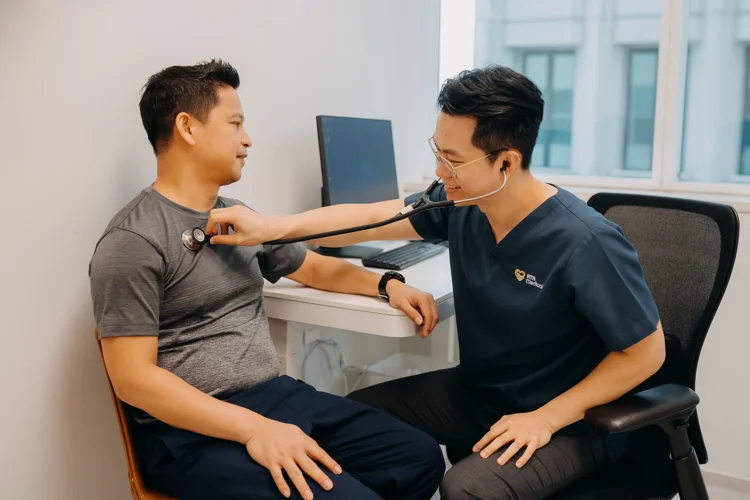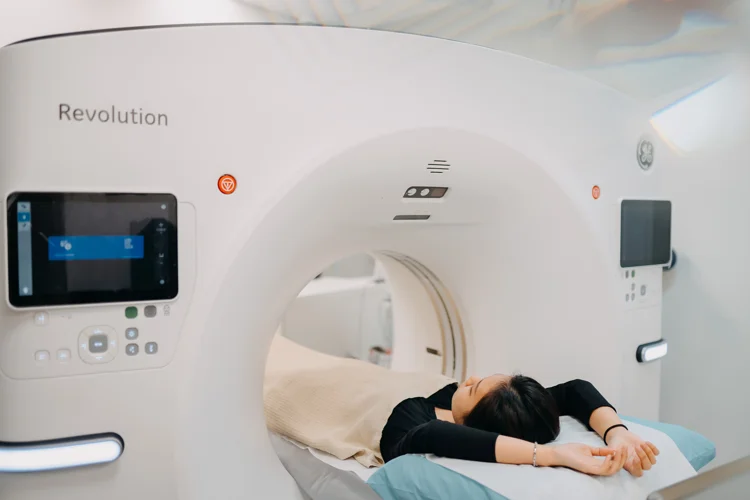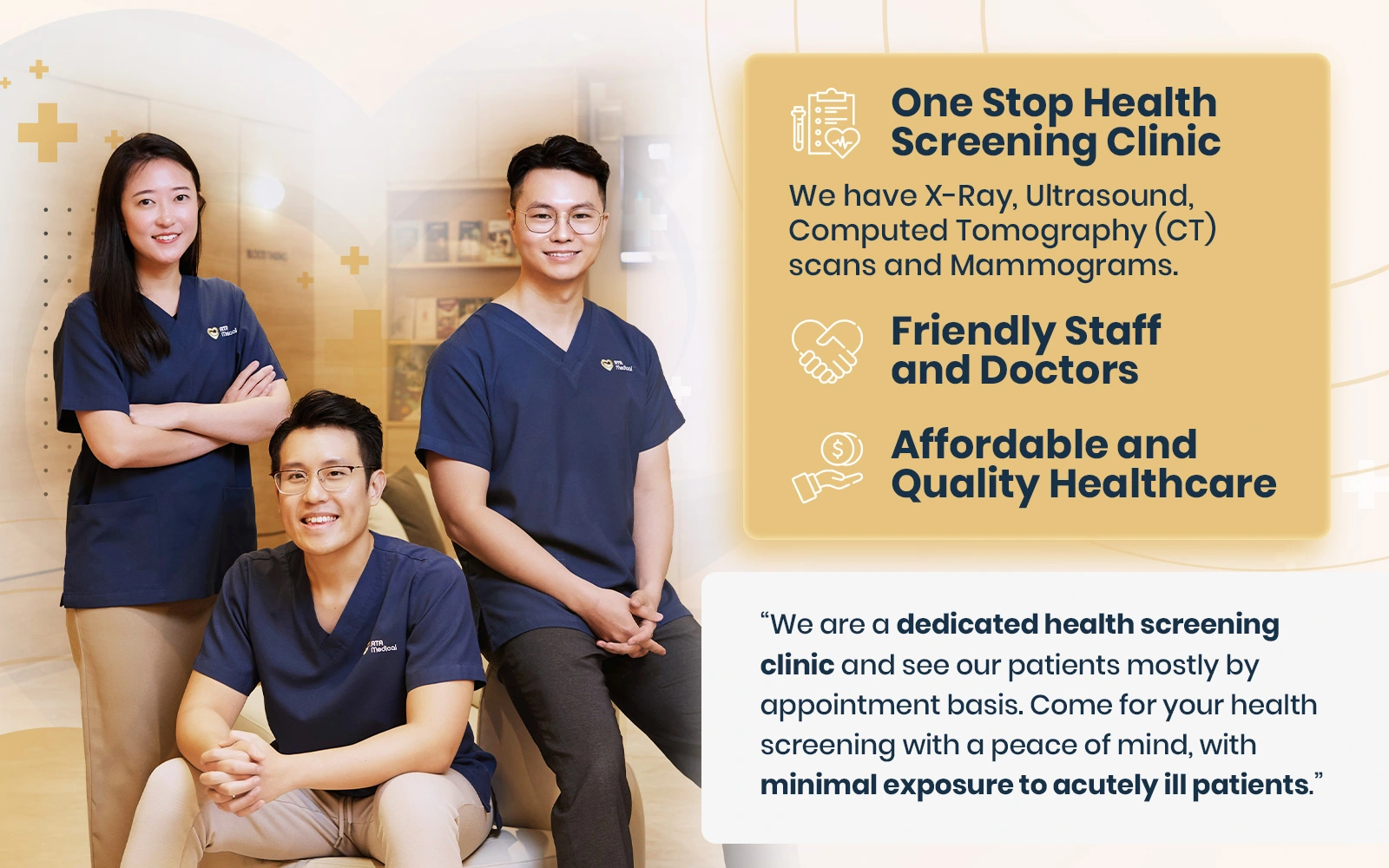How Often Should I Do Health Screening?
Last updated: Dec 16, 2025
Key Takeaways
- You are encouraged to undergo health screening once every 1 to 3 years.
- Frequency of health screening may be increased for individuals who are at higher risks.
- Please talk to a doctor to understand more about your personal risk factors and family history, and to get a personalised recommendation.
Health screenings help safeguard your health and wellbeing by detecting conditions such as high blood pressure, diabetes, and certain cancers before symptoms appear. Early detection of such conditions can help prevent serious complications and improve treatment outcomes.
What Health Screenings are Recommended?
Children and Adolescents
Health screenings begin at birth with newborn screening tests and continue with regular check-ups during childhood and adolescence. These screenings ensure that any developmental disorders, hearing or vision problems, and other health issues are detected and addressed early.
Individuals Aged 18 Years and Above
For adults in this age group, basic screenings are recommended every 1-3 years, depending on one's health status and risk factors. These screenings can include obesity and blood pressure checks.
Individuals Aged 40 Years and Above
For adults in this age group, basic screenings include obesity, blood pressure checks, cholesterol levels assessments, and diabetes screenings.
Individuals Aged 50 Years and Above
As we age, the risk for certain health issues increases, making more frequent screenings crucial.
Older adults should consider annual screenings for conditions that are more prevalent in later life,
such as colorectal cancer, osteoporosis, and cardiovascular diseases.
Colorectal cancer screening can be conducted with the use of faecal immunochemical test (checking
for the presence of blood in stool) or colonoscopy.
Recommended Frequency of Colorectal Cancer Screening
| Screening | Frequency |
|---|---|
| Faecal Immunochemical Test | Once a year |
| Colonoscopy | Once every five to ten years |
Women’s Health Screenings
Women should have regular mammograms and cervical cancer screenings, such as PAP Smears and HPV tests. These screenings help in early detection of breast and cervical cancers.
| Criteria | Cancer Type | Test Type | Frequency |
|---|---|---|---|
| Women aged 25-69 years, who have had sexual intercourse | Cervical cancer | Pap test (for 25 to 29 years old) | Once every three years |
| HPV test (for 30 years old and above) | Once every five years | ||
| Women aged 50-69 years | Breast cancer | Mammogram | Once every two years |
Men’s Health Screenings


Men at high risk of prostate cancer may also consider the following tests for prostate cancer screening.
Prostate-Specific Antigen (PSA)
The Prostate-Specific Antigen (PSA) test is a blood test that measures the level of PSA in the blood. PSA is a protein produced by both cancerous and noncancerous tissue in the prostate, a small gland that sits below a man's bladder. High levels of PSA can be an indicator of prostate cancer, but elevated PSA levels can also be caused by other conditions, such as prostatitis (inflammation of the prostate) or benign prostatic hyperplasia (BPH, an enlarged prostate), which are not cancer.
Ultrasound Prostate
Ultrasound Prostate, is a procedure where a small probe is inserted into the rectum to take images of the prostate gland. The ultrasound test uses sound waves to create a picture of the prostate gland, helping to measure its size and assess any abnormalities. This test is sometimes used in conjunction with a PSA test to help diagnose prostate cancer, guide biopsies, or monitor the growth of the prostate over time.
Special Considerations for Health Screenings
- Family History and Genetic Risk Factors: Individuals with a family history of certain diseases may require earlier and more frequent screenings. Genetic testing may also be recommended to assess risk for conditions like breast, ovarian, and colorectal cancer.
- Pre-existing Health Conditions: Those with pre-existing health conditions may need regular monitoring based on their condition and medical advice, ensuring that any complications or progressions are caught early.
- Regular vs. As-needed Screenings: While some screenings are routine, others may be prompted by symptoms, changes in health status, or specific concerns.
The Role of Lifestyle and Risk Factors in Determining Screening Frequency


Lifestyle choices and risk factors, including smoking, diet, and physical activity levels, can
significantly influence the need for and frequency of certain health screenings. For instance,
individuals with a history of smoking may require more frequent screenings for lung cancer, often
through low-dose computed tomography (CT) scans.
Low-dose CT scans are
recommended for lung cancer screening because they can detect abnormalities or nodules in the lungs
at an early stage, when the disease is more treatable. This type of screening is particularly
important for former or current smokers, as they are at a higher risk of developing lung
cancer. Adjusting the frequency of these screenings based on individual risk factors, such
as the intensity and duration of smoking history, ensures a targeted approach to lung cancer
prevention and early detection.
Consulting Your Healthcare Provider
Creating a personalised screening schedule is essential for addressing individual health needs and risks. Healthcare providers can offer tailored advice based on a comprehensive assessment of one's health history, lifestyle, and risk factors.
Personalising Your Health Screening Schedule
The frequency of health screenings should be personalised, taking into account age, gender, health status, lifestyle choices, and family history. Regular consultations with your doctor ensure that individuals receive the right screenings at the right time, maximising the benefits of preventive healthcare. By adopting a proactive approach to health screenings, individuals can play an active role in managing their health and wellbeing, leading to better health outcomes & quality of life.
Why Choose ATA Medical?


ATA Medical @ Orchard
Nearest MRT: Orchard Boulevard Station (TE13)
Contact Number: 6223 0682
Email: camden@atamed.sg
Opening Hours:
Mon - Fri: 8:30 AM to 12:30 PM, 1:30 PM to 5:30 PM
Sat: 8:30 AM to 12:30 PM
Sun & PH: Closed
ATA Medical @ Tanjong Pagar
Nearest MRT: Tanjong Pagar Station (EW15)
Contact Number: 6223 0682
Email: hi@atamed.sg
Opening Hours:
Mon - Fri: 8:30 AM to 12:30 PM, 1:30 PM to 5:30 PM
Sat: 8:30 AM to 12:30 PM
Sun & PH: Closed


